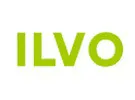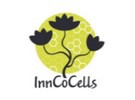Over the next four years, 17 partners from 11 European countries will be working on scientifically validated, safe, plant-based cosmetic ingredients. This Horizon2020 project is called InnCoCells (Innovative high-performance Cosmetic products from plants and plant Cells).
Three organizations will represent Belgium: The Flanders Research Institute for Agriculture, Fisheries and Food (ILVO), the Flemish Institute for Biotechnology (VIB), and AddEssens, which produces fruiticals and naturals. "We're aiming for a systematic and innovative approach," says a representative.
"We want to discover active plant components and develop them into producible ingredients for cosmetic products. These ingredients must have both proven qualities and an acceptable environmental impact. Stakeholders (producers and consumers) guide us. That ensures that these new cosmetic ingredients are truly marketable."
Innovative production processors, diverse base materials
It is not only fruit (apples, cranberry, juniper, litchi, olives) and vegetables (tomatoes, carrots) that will be researched. Herbs (ginger, basil, oregano, lemon balm, sage), hops, licorice, hemp, and flowers (marigold, geranium, chrysanthemum, lilac) are on the list too. The goal is to use production processes to develop natural cosmetic ingredients from these.
The plant material can come from full soil or greenhouse cultivation or be byproducts, but they could also come from plant cell cultures or even from so-called aeroponics - air cultivation - set-ups.
Founded in science, without animal testing
The InnCoCells approach has a basic principle. Any biological activity of a potential ingredient is validated, with a wide range of cell-based tests. Crucially, none of the products are tested on animals, and none of the ingredients will contain animal components. The selection process ensures that only certain plant extracts and natural products will be further developed. These are the most promising activities and environmentally friendly production processes, which will be tested on human volunteers.
All aspects of the future production chains
The 11 countries involved are developing a streamlined evaluation period. Just about all the plants and their derived ingredients can be carefully tested for the presence of bioactive components with relevant functional properties. The project partners believe they will be able to verify the activity of as many as 50 innovative ingredients. Of those, at least 20 should lead to optimized production processes. "We want zero-waste processing too. We'll begin by analyzing ten agrifood residual streams for their starting material potential. Here we also study feasibility, and we're making a sustainability analysis of the necessary processing steps," says ILVO's Bart Van Droogenbroeck.
Developing sustainable production and purification technology is a major challenge for InnCoCells, as they do not currently exist in Europe, even on a test scale. The researchers want to develop these technologies for at least ten active ingredients. Besides that, they are also working on administrative market access by compiling product safety and regulatory documents and doing the necessary environmental assessments.
InnCoCells has been trying to find market introduction opportunities from the outset. The project partners will share new knowledge with cosmetics industry stakeholders and end-users in order to promote the rapid commercialization of ingredients. Finally, the project will also see to it that this created added value is distributed fairly among the entire production chain's players.
Innovation, sustainability, and marketing brought together
InnCoCells' EU budget is €7,9 million. Finland's VTT Technical Research Centre will coordinate this project. The 16 other partners are a mix of academic institutions (universities and research organizations) and SMEs as well as one large industrial partner, a non-profit organization, and a cosmetics industry sector partner.
ILVO is tasked with, among other things, the organic bio-refining of supplied plant material, which is necessary to purify components relevant to cosmetic products. As few byproducts as possible will be created during this refining process, so that it comes as close as possible to 'zero waste' processing.
For more information:
Instituut voor Landbouw-,
Visserij- en Voedingsonderzoek
www.ilvo.vlaanderen.be/nl
[email protected]
InnCoCells
www.inncocells.org
